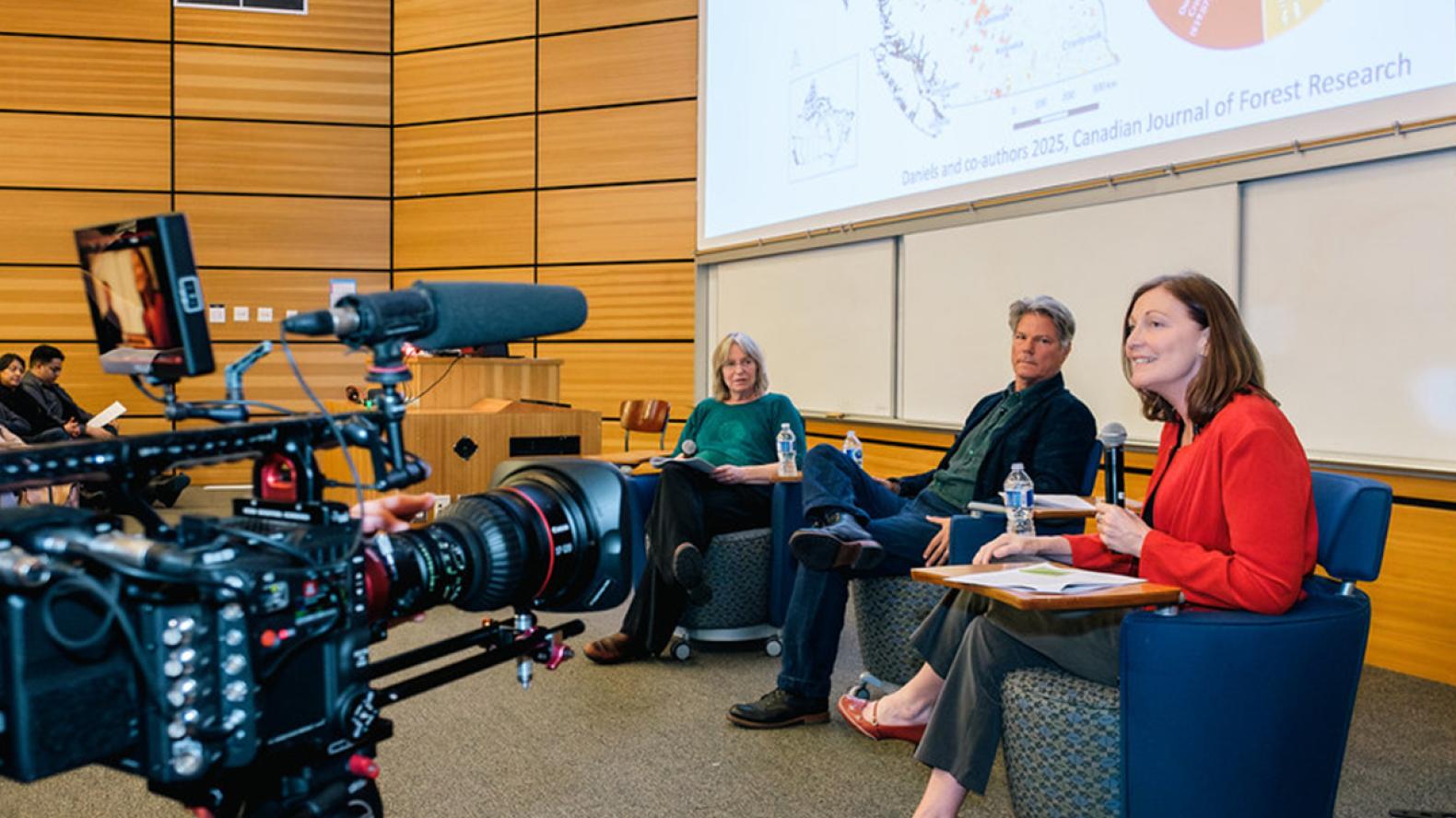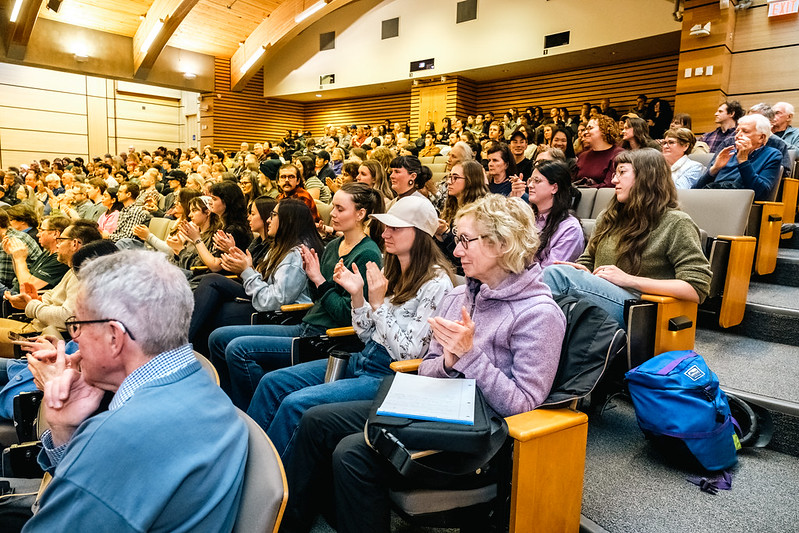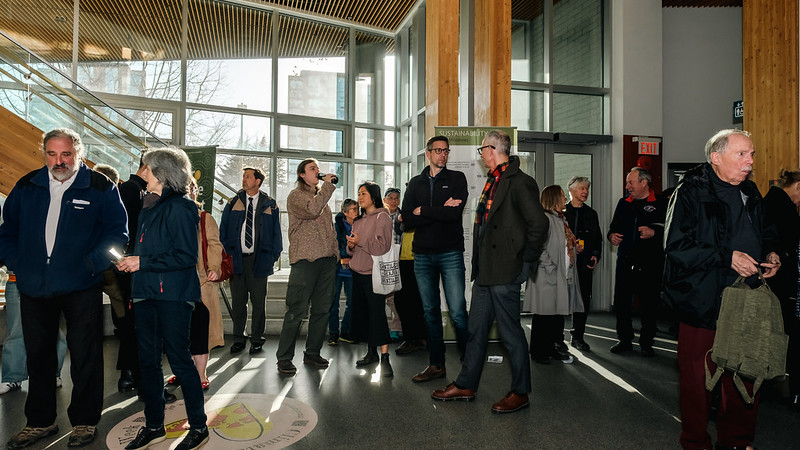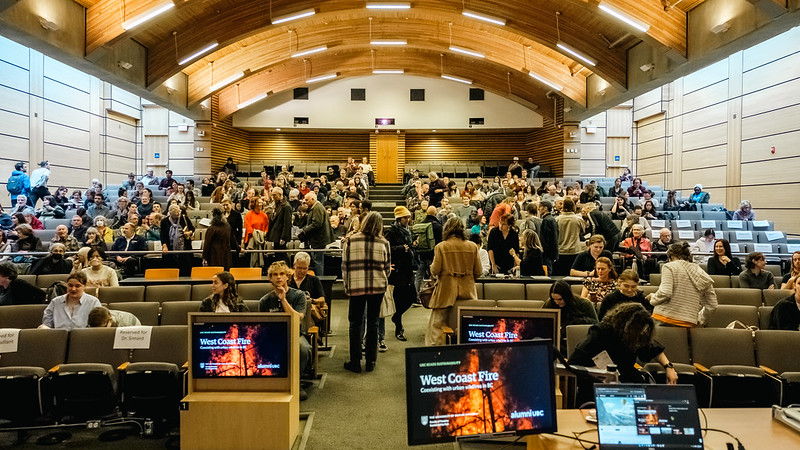
On April 3, bestselling author John Vaillant sat down with Professor Lori Daniels and Professor Suzanne Simard to discuss the new wildfire reality facing urban BC.
In his book Fire Weather, John Vaillant explores Fort McMurray’s devastating wildfire and says he sees the same “psychic resistance” to wildfire risk more broadly.
During an evening of conversation with Dr. Lori Daniels and Dr. Suzanne Simard at West Coast Fire on April 3, Vaillant observed that we are in a "semi-psychotic state of denial," where certain industries and governments have an official mandate to contradict climate science. Beyond this, he added, "once you admit that [our communities could burn], that’s a really scary prospect."
"The first step is the brave admission."

As Fire Weather documents so powerfully, in May 2016, residents of Fort McMurray saw a fire gaining momentum in the forests surrounding their prosperous, petroleum-based community. As the fire progressed towards them, they continued about their daily lives.
“People ... simply couldn’t wrap their heads around the possibility that the fire “out there” in the forest, where it belongs, could come into their yard ... [and] neighbourhood,” Vaillant shared. “It was simply unimaginable.”
Could this happen in urban BC? “Fires burning into our neighbourhoods and into urban areas is [already] a reality,” reported Dr. Daniels. A changing climate and settler forest management and fire suppression frameworks created in the 1950s have put us onto a path of increasing wildfires in British Columbia.

Reintegrating and coexisting with fire
Indigenous peoples have long known that fires increase the resilience of forest ecosystems. “Collaborators from Indigenous communities all around this province have repeatedly shared with me that if you want to cleanse the land, you can use water or you use fire,” Dr. Daniels said. “Fire is part of giving to the land, and in return, the land gives.” A transformative paradigm shift in settler practices and policies is needed to allow us to similarly address fire risks and increase resilience.
Throughout West Coast Fire, the speakers discussed a number of wide-ranging suggestions for how we might mitigate and adapt to the new reality of increasing wildfire at individual, community, industry and provincial scales:
-
Pursue government-to-government relationships, with Indigenous peoples setting land management frameworks
-
Advocate for the provincial government to change management systems to prioritize resilience and ecosystem health over timber values
-
Implement Fire Smart principles in our homes and plan for Fire Smart communities
-
For instance:
-
Choose non-combustible materials for houses and house renovations
-
Ensure all neighbourhoods have two ways in and out
-
-
-
Communicate the urgency of climate change by telling stories with human experiences at the centre, to take advantage of our innate empathic abilities
-
Adopt a paradigm shift in forest and fire management practices

-
Allow fire to exist
-
Support Indigenous community-led cultural burning practices
-
Allow lightning-caused fires to burn in cooler and wetter seasons
-
-
Change forest management practices to reduce fuel loads
-
Thin forests
-
Reduce the amount of fuel we leave on the landscape after harvesting trees
-
-
Pursue adaptive management that is responsive to feedback
“Fire is not going anywhere,” declared Dr. Daniels during the event. “But I don’t think we’re going anywhere either.” Admitting the risks and using our communal energy to prepare for fire rather than reacting to fire is, Vaillant noted, an exciting prospect.
Learn more about wildfire research at UBC
If you are interested in the topic of wildfire, you may wish to attend Indigenous-Led Forest Stewardship and Climate Action in North America, to be held at UBC Robson Square April 28-29.
Learn more about UBC’s Faculty of Forestry and Centre for Wildfire Coexistence.
Meet the UBC Sustainability Hub team and find out more about what they do.